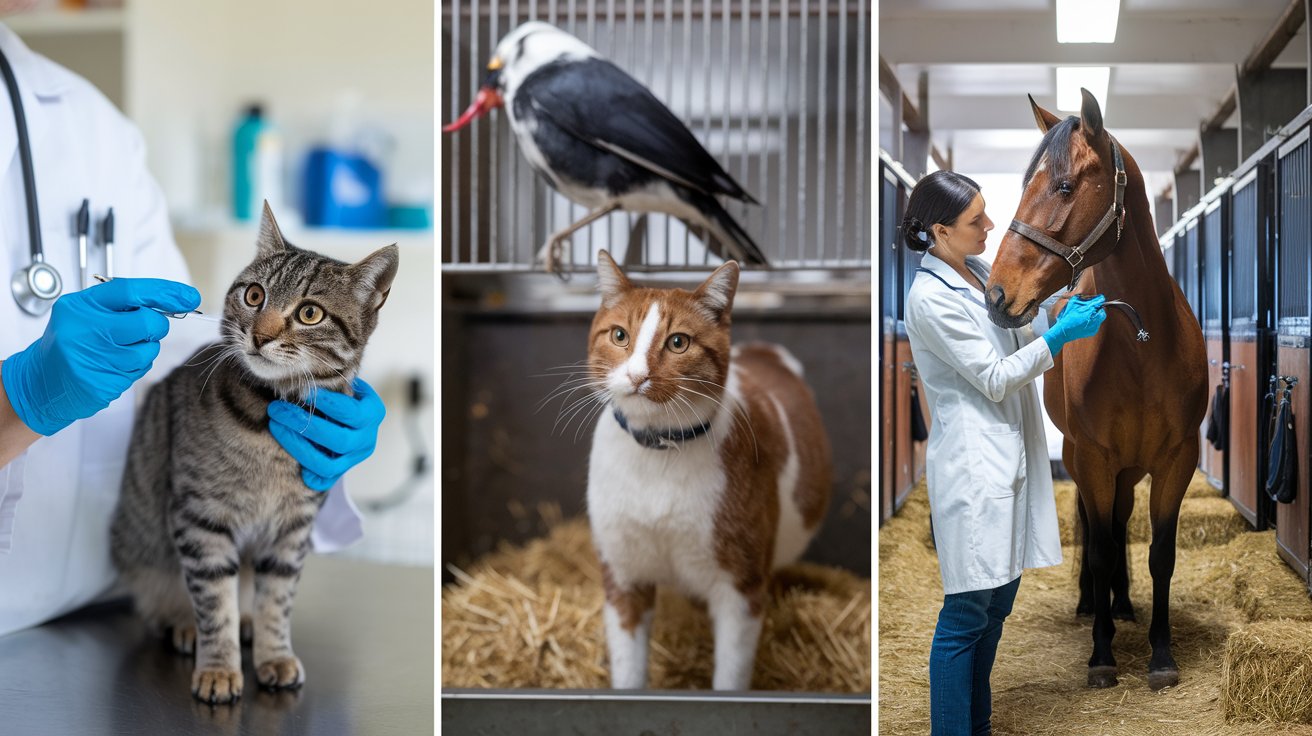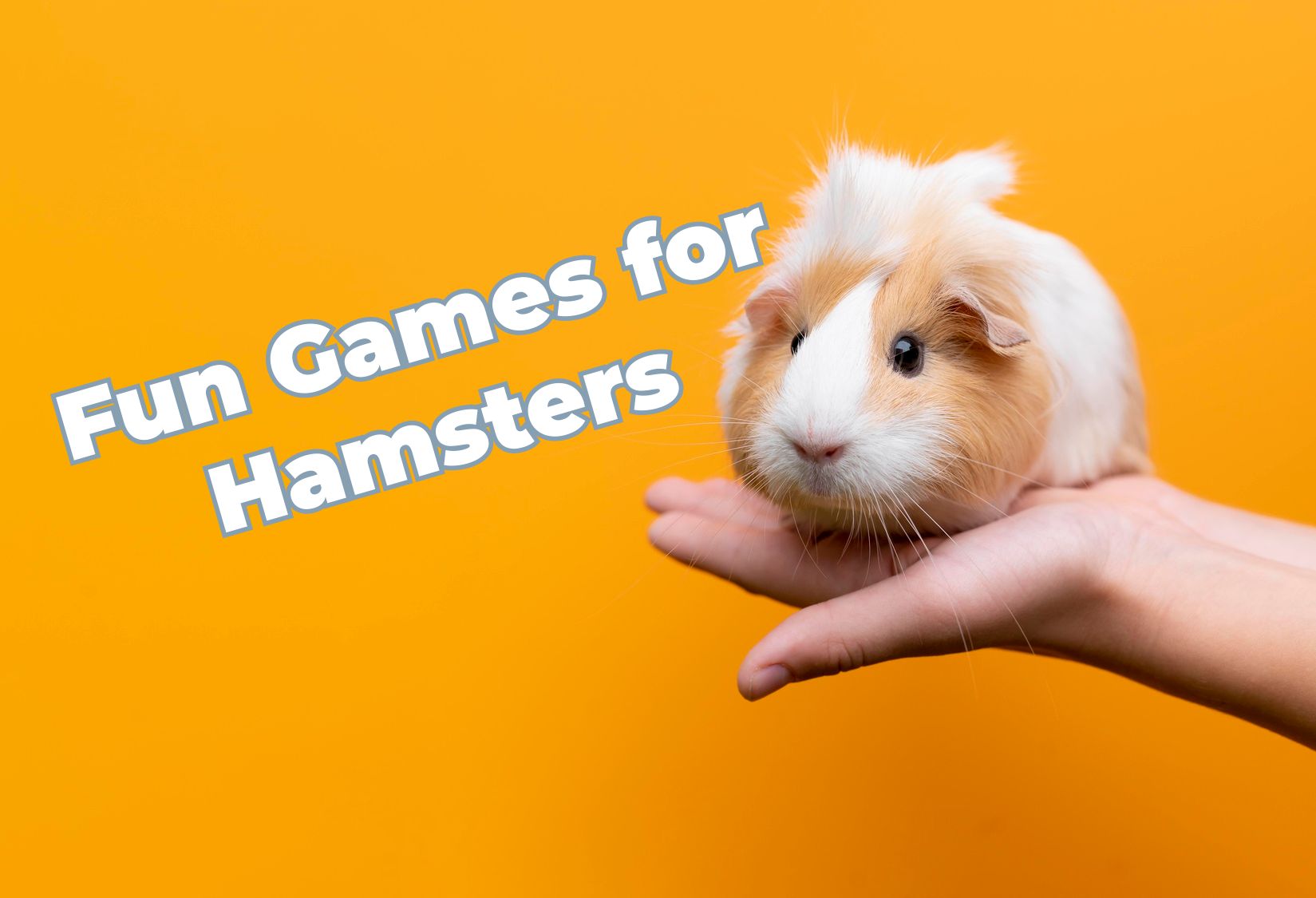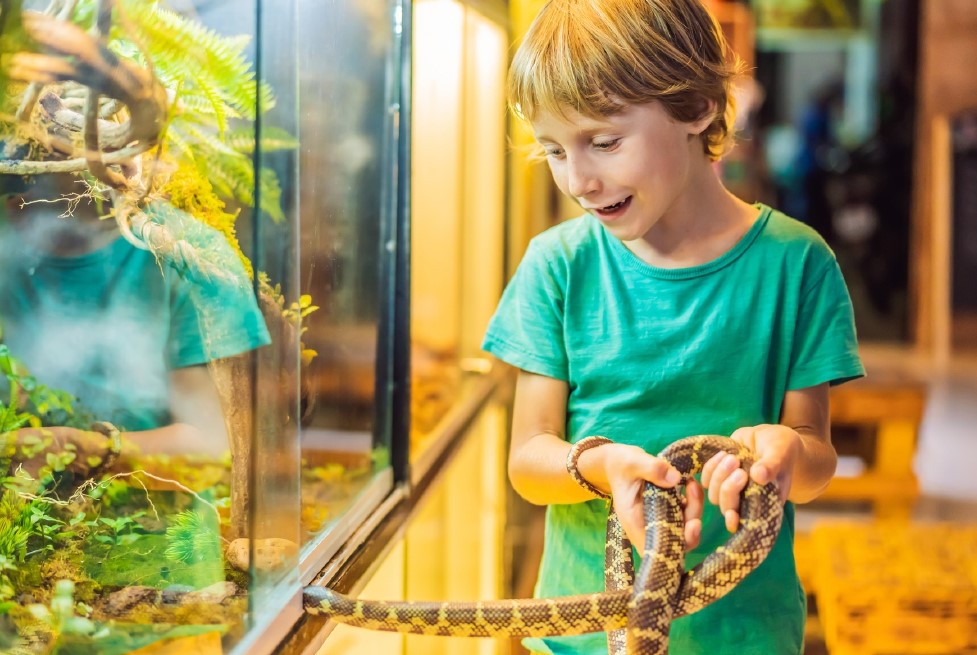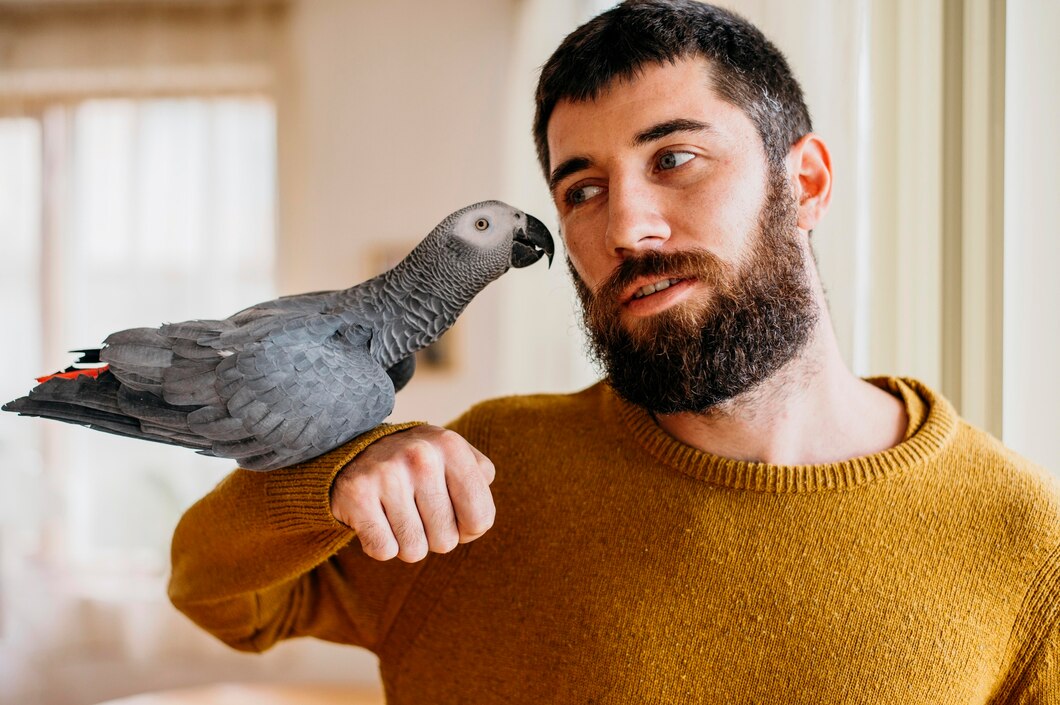Do parakeets talk? How to train a Parakeet is a commonly asked question for the new parents of birds. Especially when you get your first-ever talking parakeet. Parakeets, also known as budgerigars, are one of the most popular pet birds worldwide. They are small, friendly, and intelligent creatures that can make great companions. Parakeets’ ability to mimic human speech is one of the most intriguing things. But do parakeets talk? And if so, how to train your parakeet to speak? In this article, we’ll answer these questions and provide tips on how to train your parakeet to talk.
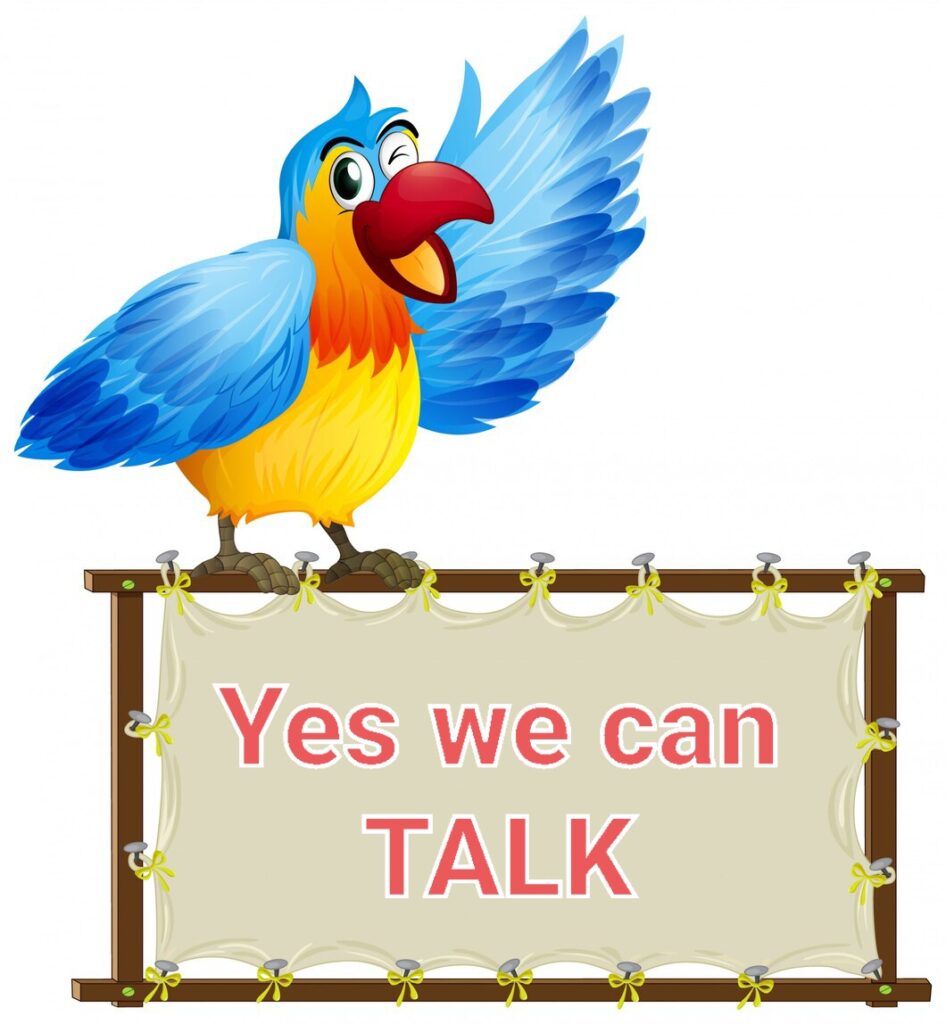
Do Parakeets Talk?
Yes, parakeets can talk! They are known for their ability to mimic human speech and other sounds. However, not all parakeets are talkative; some may never learn to talk. The ability to talk varies from bird to bird and depends on several factors, including age, sex, and personality. Younger parakeets tend to be more vocal and easier to train, while older birds may not learn to talk as easily.
How to Train Your Parakeet to Speak
Training your parakeet to talk takes time and patience, but it can be a rewarding experience. Here are some tips to help you get started:
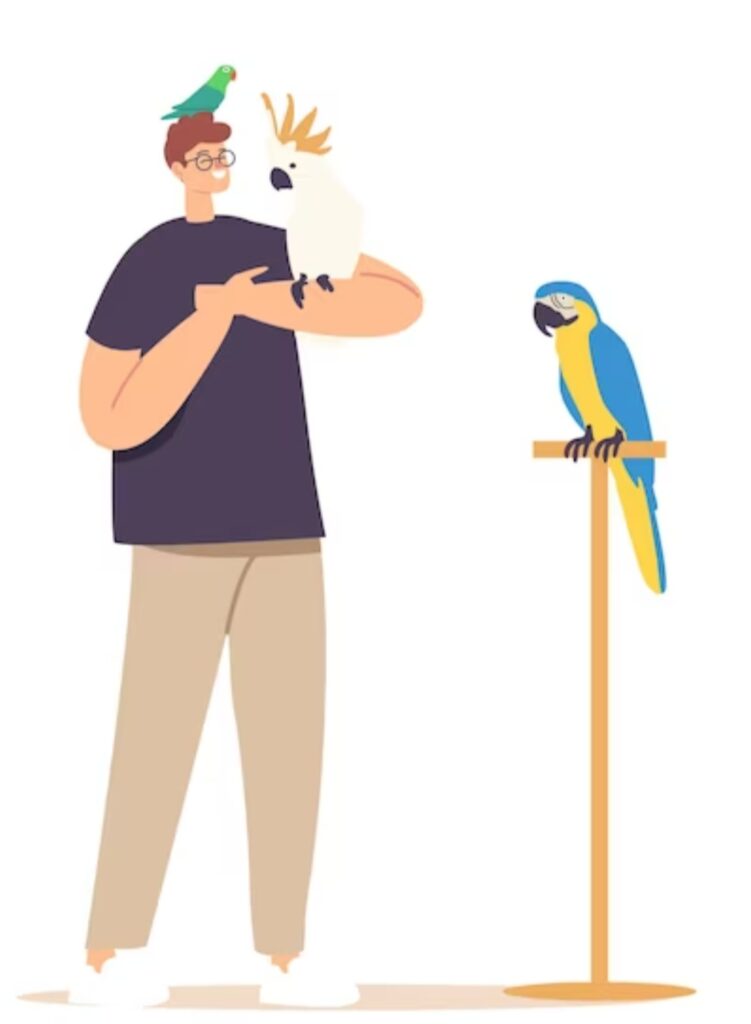
- Start with simple words: When you first start training your parakeet, begin with simple words like “hello,” “goodbye,” or your bird’s name. Repeat the words often and consistently in a calm, clear voice.
- Be patient: Training your parakeet to talk takes time, and it’s important to be patient. Don’t get discouraged if your bird doesn’t learn to talk right away. Keep practicing, and eventually, your bird will start to mimic the words.
- Use positive reinforcement: When your parakeet makes an attempt to speak, reward them with praise and treats. Positive reinforcement is essential in training your bird to speak.
- Speak to your bird often: The more you talk to your parakeet, the more likely they are to learn to talk. Make sure to speak to your bird often, even when you’re not actively training them.
Other Factors that Affect Your Parakeet’s Ability to Talk
Besides age and personality, other factors can affect your parakeet’s ability to talk. Here are a few:
- Gender: Male parakeets are generally more talkative than females.
- Environment: A noisy or stressful environment can make it harder for your parakeet to learn to talk.
- Bonding: Parakeets that have a strong bond with their owners are more likely to learn to talk.
- Genetics: Some parakeets may simply have a better ability to mimic sounds than others, based on their genetics.
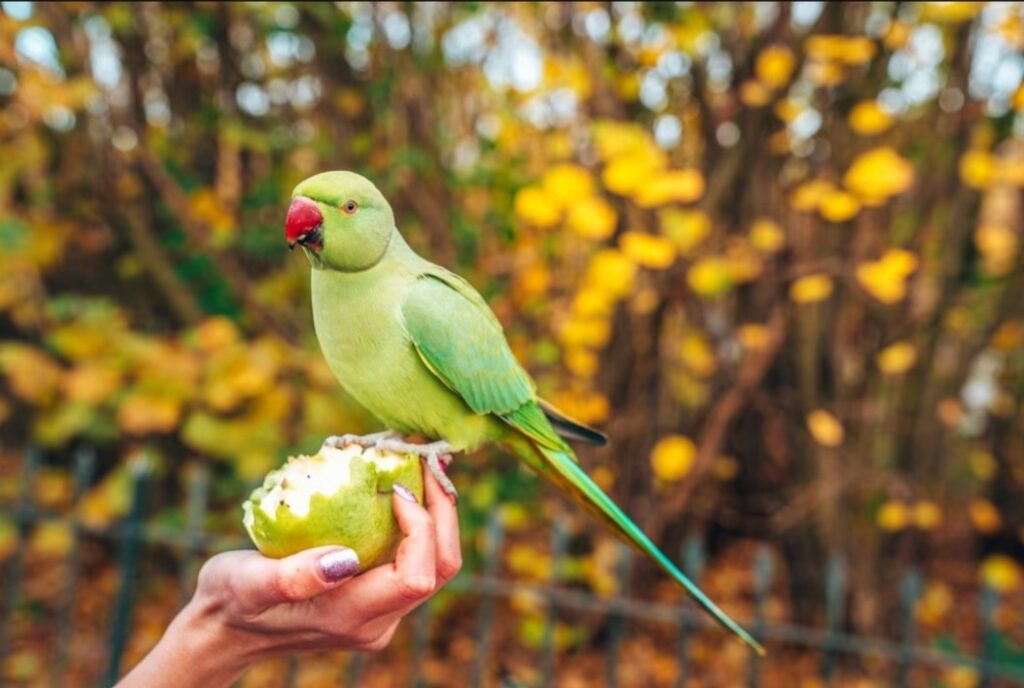
Parakeet Training Do’s and Don’ts
When training your parakeet to speak, there are a few things you should and shouldn’t do. Here are some tips:
Do:
- Use short sentences: Parakeets can’t learn long sentences, so keep your phrases short and simple.
- Use a clear, calm voice: Speak slowly and clearly, and use a calm, friendly tone of voice.
- Be consistent: Use the same words and phrases consistently, and practice often.
Don’t:
- Yell or scream: This can scare your bird and make them less likely to learn to talk.
- Use negative reinforcement: Punishing your bird for not speaking will only discourage them from trying.
- Give up: It takes time and patience to train your parakeet to speak. Don’t give up if your bird doesn’t learn right away.
Conclusion
In conclusion, parakeets are known for their ability to mimic human speech and other sounds, and with patience and persistence, you can train your parakeet to speak. It’s important to start with simple words, use positive reinforcement, speak to your bird often, and be patient. Factors like age, gender, environment, bonding, and genetics can also affect your parakeet’s ability to talk. When training your bird, it’s important to use a clear, calm voice, be consistent, and avoid negative reinforcement. With these tips in mind, you can enjoy the company of a talkative and intelligent parakeet. Also, you can now answer the question when asked Do Parakeet Talk? How to train a Parakeet is just easy peasy!
While you are here, read fun facts about lovebirds https://aboutpetscare.com/index.php/2023/03/27/7-fun-facts-about-love-birds/



